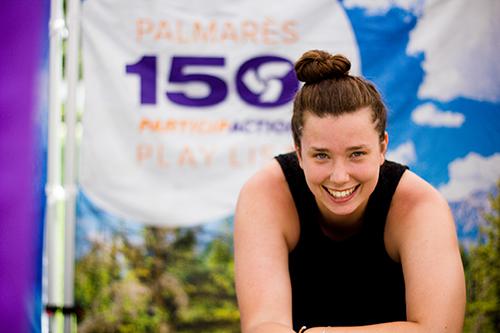Welcome to the December issue of
CanChild Today!
In our last newsletter of the year, we invite you to catch up on our latest CP-NET webinar, "Communication Technology for Children with Cerebral Palsy", and highlight recent accomplishments and publications from our CanChild colleagues.
Thank you for another wonderful year at CanChild. May your holidays be merry
and the New Year filled with friends,
family and fun!
Please feel free to share CanChild resources and this newsletter with family, friends and colleagues. They can subscribe to the
CanChild Today! Newsletter for free by registering
here
. Our past issues are archived on the CanChild website and can be accessed
here!
|
|
Now Online: New CP-NET Webinar!
Communication Technology for Children with Cerebral Palsy
A CP-NET webinar originally presented on November 29, 2017
Presenters: Johanna Geytenbeek, Danijela Grahovac and Fanny Hotzé.
The ability to communicate thoughts, feelings and information is essential to the well-being of a child and their family. Many children with CP have challenges communicating with speech, and too often it is assumed that a child who does not speak is unable to connect with, or understand, the world around them.
CP-NET is proud to present "Communication Technology for Children with Cerebral Palsy", a webinar highlighting new research and technologies that aim to assess and support a child's ability to communicate.
This webinar will be of interest to individuals with CP and their families, researchers and healthcare professionals.
|
 |
N
ews and Congratulations!
Congratulations to the recipients of the 2017 CanChild Research Awards, Lea Damata (Physical Therapy) and Kait St. Pierre (Occupational Therapy)! These annual awards recognize graduating students from the School of Rehabilitation Science at McMaster University who had a focus on childhood disability.
 |
The poster, entitled "Engaging Youth and Researchers: A collaborative video project to spread awareness on the #F-words", described the process of co-creating the recent CP-NET video "These six F-words won't fill up your swear jar". ad a focus on childhood disability. |
|
Recent Publications by CanChild Members
|
The International Classification of Functioning, Disability and Health (ICF) is a framework that promotes a holistic approach to planning and service delivery for youth with chronic health conditions as they transition from pediatric to adult healthcare. In this scoping review, the authors investigate the extent to which the ICF is being used in transition research and practice. Additionally, the review identifies two themes that emerged through analysis of the included articles, discusses the strengths and limitations of the ICF for planning and delivering transition services, and offers recommendations for additional research.
Authors:
Nguyen T, Stewart D, Rosenbaum P, Baptiste S, Kraus de Camargo O, Gorter JW.
Res Dev Disabil. 2017 Dec 1;72:225-239. doi: 10.1016/j.ridd.2017.11.003. [Epub ahead of print]
Excellence in Promoting Participation: Striving for the 10 Cs-Client-Centered Care, Consideration of Complexity, Collaboration, Coaching, Capacity Building, Contextualization, Creativity, Community, Curricular Changes, and Curiosity.
Researchers and professionals recognize that participation in home and community is essential for children with physical disabilities. In this article, the author explores and defines the construct of participation for pediatric rehabilitation, and proposes recommendations for practice, education and research to transform service delivery. Two models for participation-based pediatric rehabilitation are reviewed, and the role of the physical therapist is explored. The author presents considerations for measuring participation as well as the planning and implementation of participation-based interventions. Lastly, practitioners, educators and researchers are called upon to act as advocates and change agents to ensure the full support of participation for children with disabilities.
Author:
Chiarello LA.
Pediatr Phys Ther.
2017 Jul;29 Suppl 3 Supplement, IV Step 2016 Conference Proceedings Supplement:S16-S22. doi: 10.1097/PEP.0000000000000382.
|
 |
Canadian Anti-Spam Legislation
You are a member of the CanChild Today electronic newsletter generated by CanChild at McMaster University. If you believe that you should not be a recipient, you may withdraw your consent to receive these messages at any time, in accordance with Canadian Anti-Spam Legislation (CASL) and subject to McMaster University policy, by contacting the sender of this message, or by clicking on the 'SafeUnsubscribe' link at the bottom of this newsletter.
|
|
|
|
|